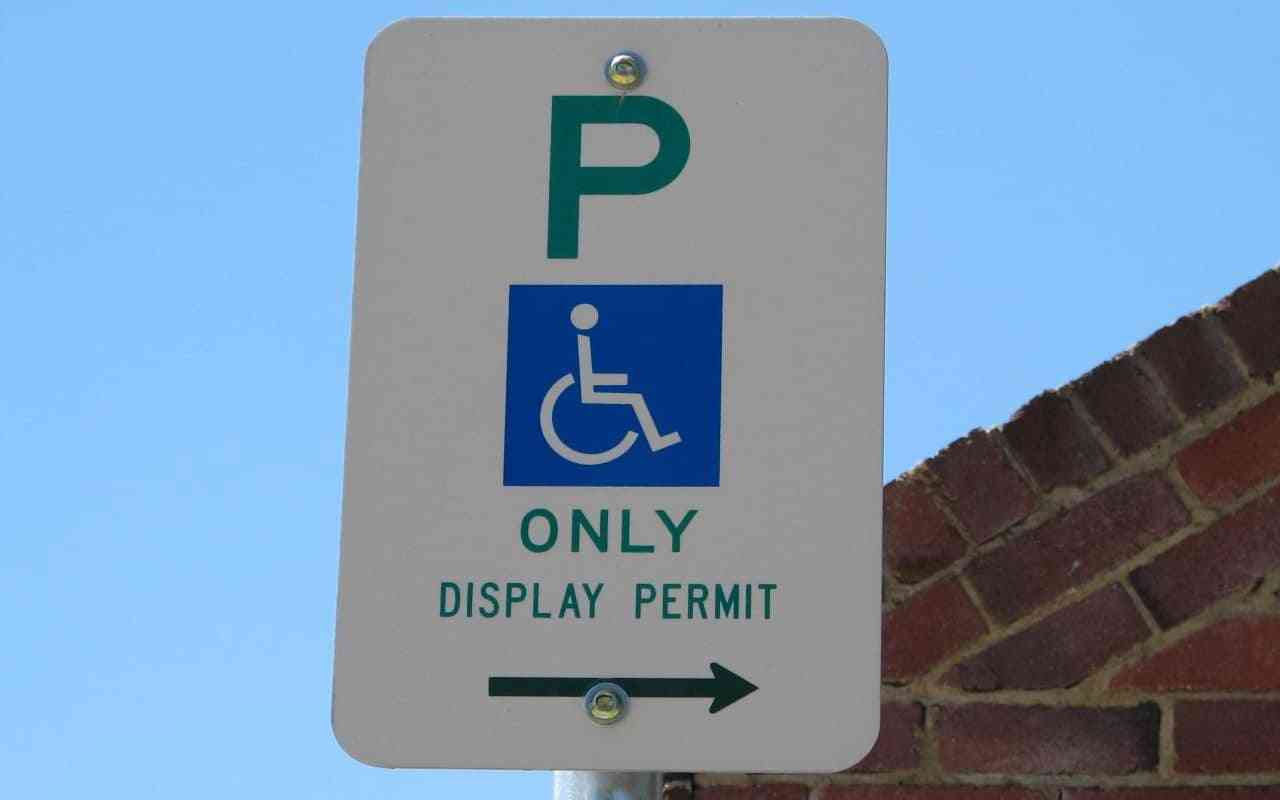The other day, I was sitting in the passenger seat of our car, which was parked in a disability parking spot. My permit placard was displayed as required near the windshield. We were at a California beach, and while the rest of the family had walked off to the beach, I was still seated in the car. I have Parkinson’s disease, and I have quite severe tremors that are managed with medication. That particular day, the medications were not working as expected, and therefore, I was sitting and waiting for the medication to take effect and stop my tremors, upon which I intended to join my family,
A few moments later, an elderly man pushing his physically disabled son on a specially fitted tricycle came back from the beach and stopped at the van next to us, which was also in a disability parking spot. The gentleman proceeded to go through the motions of starting to transfer his son back into the van. He happened to notice me and gestured to me, and said something that I could not hear because all of our car windows were raised. I was still tremoring, so I just mouthed, “What do you want?” He continued what appeared to be a tirade.
The man became more animated and pointed to my windshield and appeared to point toward my disability placard. He then came to the passenger side and was muttering more words and appeared to be asking me to roll down my window so we could communicate. I could not oblige because the key was out of the ignition, and I was in the wrong seat and wasn’t about to turn the car on. Also, my tremors had not subsided yet, and I could barely move. I remained seated. The man returned to his son, who was sitting out in the cold and just motionless and helpless since he was severely disabled.
I was concerned that the man might have needed help transferring his son to the van. My tremors still bothered me, and I knew I would have difficulty moving. Despite that, I opened the car door and, with great difficulty, managed to walk out slowly, with the tremors still pronounced and a stiff and unsteady gait. I approached the father and asked him whether he needed help and if that was what he was asking.
“It’s all right,” he replied and continued. “I was just concerned that you did not appear to be disabled, and I was wondering if your disability parking license was legit and if you deserved one. It appears you probably do, so I will let you go.” I was stunned. This man had no idea about my Parkinson’s condition and the extent of disability that came with it. He had taken it upon himself to police the parking situation under misguided reasoning and assumptions. He had allowed his anger even to distract his attention from his disabled son, albeit temporarily. It was also a sad commentary on the state of affairs in our American society, where appearances matter more, and the subtleties and uniqueness of each person’s disability are not understood by many.
I asked whether he needed help, which he declined. I then went back to my car and waited until my tremors stopped. That day, they never did.
I look upon this incident as a learning and teachable moment, which has convinced me that a lot of education needs to be done regarding both Parkinson’s as well as disabilities in general. Just because someone appears “normal” and is using a disability license, it doesn’t mean that the person is a cheat. There is more to it than what meets the eye. For instance, what if I had a leg injury and my leg had been in a cast? The man could not have seen my leg, and he would have made a similar wrong assumption. We should refrain from passing judgment on others and let professionals do their job. After all, a doctor had to certify my condition and eligibility.
Parkinson’s disease is a progressive, neurodegenerative condition characterized by tremors, movement, walking difficulty, balance, slow reflexes and responses, slurred speech, memory and focus issues, and much more. It is a complicated condition that is not uniform in its manifestation, and the symptoms differ dramatically from one Parkinson’s patient and the next. Furthermore, there are other side effects caused by the medication used to treat the disease that can distort body parts, such as curling of toes called dystonia, rhythmic shaking, exaggerated tremors, and uncontrollable convulsions.
Medical professionals are required to certify the need for a disability parking permit. Why would a stranger doubt the veracity of such certification? It boggles the mind. What gives someone the right to assume the responsibility of an enforcer and attempt to prevent a legitimate holder of a parking permit from parking legally based on uninformed perceptions? It is time that we do more to evangelize the topic of compassionate understanding of the myriad complexities that accompany the issue of disability and the rules and laws of society that are designed to accommodate and assist those in need.
Disease, disability, and death do not discriminate. Who knows what the future has in store for each of us? Today’s healthy individual might be a quadriplegic tomorrow and forced to get on the disabled boat. One never knows.
I rationalized the words and actions of the disabled boy’s father by acknowledging that he was perhaps exhausted, pained, and struggling to meet his son's needs. He probably mistakenly thought and assumed that all disabled people had to appear like his son to receive help and accommodation, such as a parking permit. I felt compassion for the father and son. But I also feel strongly about standing up for the rights and benefits that I am entitled to. I took nothing from anyone else by applying for and obtaining my parking permit.
Previously published on Medium.
I offer opinions, thoughts, perspectives & insights into the human condition from the perspective of an everyday layman. I have been in the technology industry for three decades. I write and blog about finance, technology, politics, lifestyle, health, nutrition & much more.







